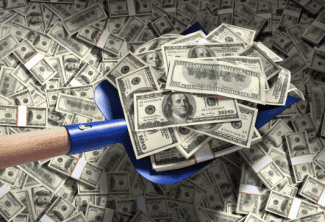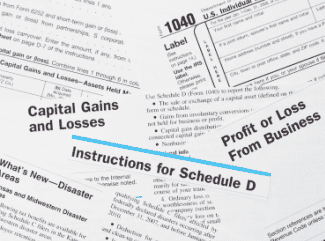Smart Budgeting for Any Economy
by Ilyce Glink, Inman News
 When setting up your household budget, you have to think about big-ticket items, such as how much should you spend on your rent or mortgage payments, how much should you budget for utilities in a new home, and what will it cost you to buy homeowner or renter insurance to fully protect yourself in case of catastrophe.But more trivial expenses, like how much you’re going to spend on the average Saturday night out and what kinds of cable bills you’ll be paying are important pieces of a household budget as well. And with the cost of food and fuel rising, you might need to pare back on your household entertainment expenses if your heating bill is skyrocketing.
When setting up your household budget, you have to think about big-ticket items, such as how much should you spend on your rent or mortgage payments, how much should you budget for utilities in a new home, and what will it cost you to buy homeowner or renter insurance to fully protect yourself in case of catastrophe.But more trivial expenses, like how much you’re going to spend on the average Saturday night out and what kinds of cable bills you’ll be paying are important pieces of a household budget as well. And with the cost of food and fuel rising, you might need to pare back on your household entertainment expenses if your heating bill is skyrocketing.
Knowing what your household expenses will be before you move into your new home may be time-consuming to calculate. But creating this kind of household budget before you move will make your financial life easier down the road.
Here’s how to create your own household budget:
Start with your basic household expenses: housing expenses (rent or mortgage); insurance premium (a homeowner or renter policy); utilities (phone, electric, gas, cable, Internet service, wireless, etc.); food; entertainment; clothing expenses; home furnishings (painting, carpeting, furniture, etc.); transportation; savings; donations; children’s expenses (if you have any); medical; household cleaning and maintenance expenses; and school supplies or daycare expenses, if you have kids, etc.If you own your home or will be buying a home, be sure to include ongoing costs for maintenance and upkeep, real estate taxes, and homeowner association dues or monthly maintenance costs.
A big clue to what you will spend in the future can be found in what you’re spending right now. If you don’t already track your household expenses, you should buy a small, wire-bound notebook and start writing down every cent you spend.
A neat trick I still employ is to wrap a sheet of paper around the dollar bills in my wallet (a piece of sticky notepaper works also) and then any time I withdraw dollars from my wallet, I write down how much I’ve spent in cash.
You probably pay a lot of your household expenses with your checkbook, so run through the checks you’ve written or sent online, and jot them down in your wire-bound notebook.
If you have a pocket or purse full of receipts, be sure to add those in as well. Go online to check your credit-card accounts, and write down all purchases you’ve made in the past few months.If you track your expenses with money management software, such as Quicken or Microsoft Money, you’ll be able to quickly get your hands on these numbers.
If not, consider using free online services to track your household expenses, such as Quicken Online or Mint.com. You can download your credit-card charges and bank information into your online accounts, which should update automatically. You can then check this information from anywhere as long as you have an Internet connection.Once you know what you’re currently paying, you should analyze whether you’re living above, below or at your means. Then, try to calculate what your basic expenses will be in your new home.
Will your new mortgage or rent payment be higher than what you’re paying now? What if you factor in taxes and insurance? Will these higher payments be affordable or will you be putting an undue strain on your household budget?
Don’t underestimate the extra one-time costs associated with your move. You may have to hire movers or rent your own moving truck. You’ll need to clean your new home and perhaps buy draperies, appliances or even light fixtures. While these one-time expenses shouldn’t sink your ongoing household budget, they can drain your cash reserves, so be sure to plan for them when you’re saving up for your move.
When it comes to setting up a household budget that works, you’ve got to be realistic and conservative. You should be realistic on what things actually cost, so if you don’t know, take the time to find out how much your property taxes will be, for example. For numbers that can’t be known, you should estimate expenses conservatively. So instead of guessing that your energy bill will be $200 per month, set your budget number at $300 or even $400 per month. The worst thing that will happen is you’ll wind up with some extra cash at the end of the month.
Even after you move into your new home, you should continue tracking your expenses for at least a year. (Actually, I think you should track your expenses forever.)
Over the course of the first year you live in your new home, you’ll see how your expenses rise and fall with the seasons, and you’ll get a real sense of how much you’re spending to live the way you do. If you decide you need to tighten your belt, you’ll have a year’s worth of household expenses to look back on and help you make the decision where to cut.
To get even more valuable advice from Ilyce, visit her Personal Finance and Real Estate Center. What’s your opinion? Leave your comments below or send a letter to the editor. To contact the writer, click the byline at the top of the story.
Copyright 2008 Ilyce R. Glink
See Ilyce Glink’s feature, Why Small Houses Make Sense.
American Apartment Owners Association offers discounts on products and services related to your commercial housing investment including REAL ESTATE FORMS, tenant debt collection, tenant background checks, insurance and financing. Find out more at www.joinaaoa.org.
To subscribe to our blog, click here















 Accessibility
Accessibility